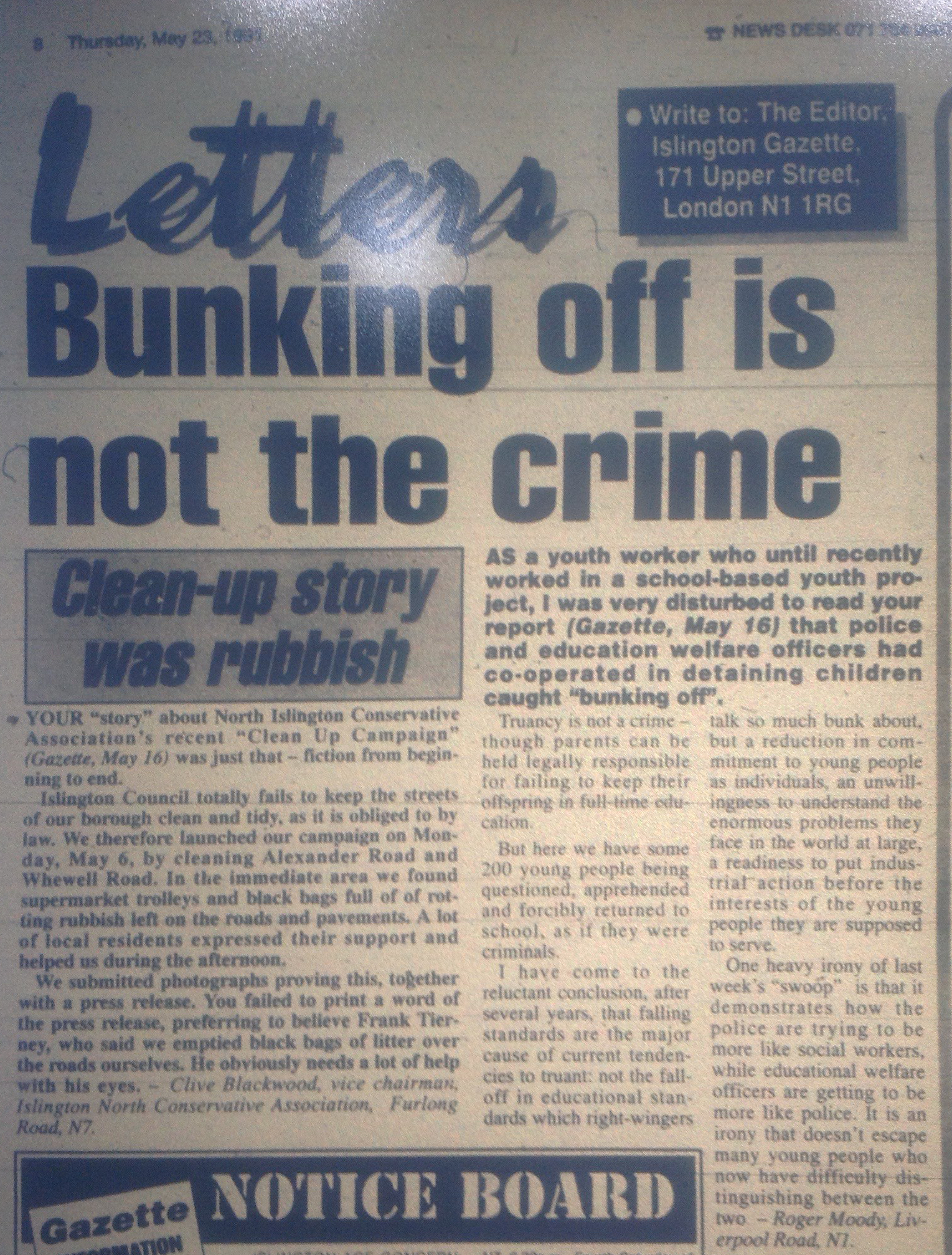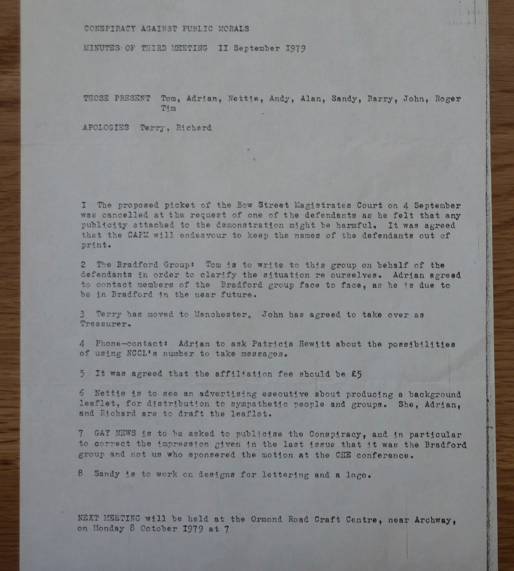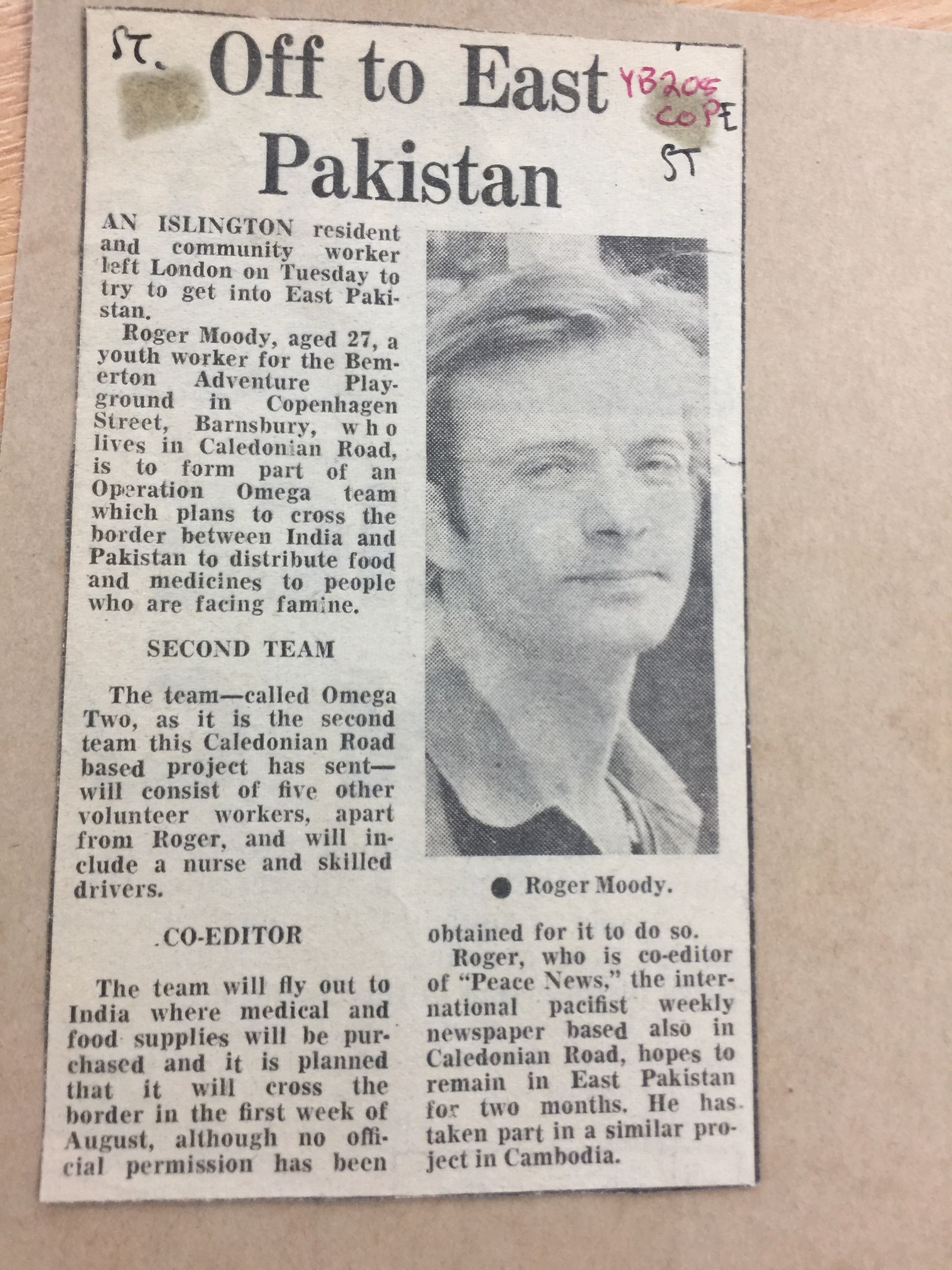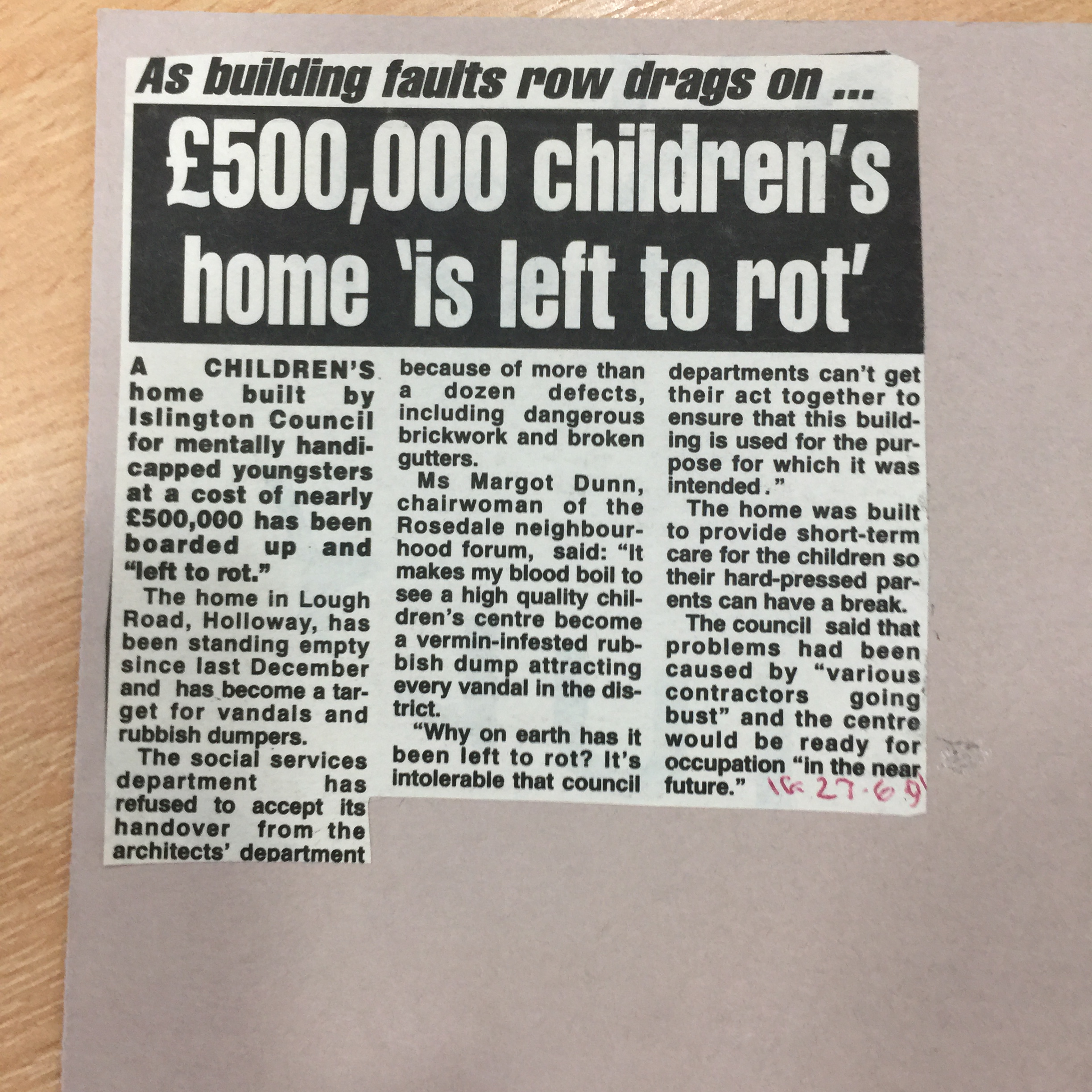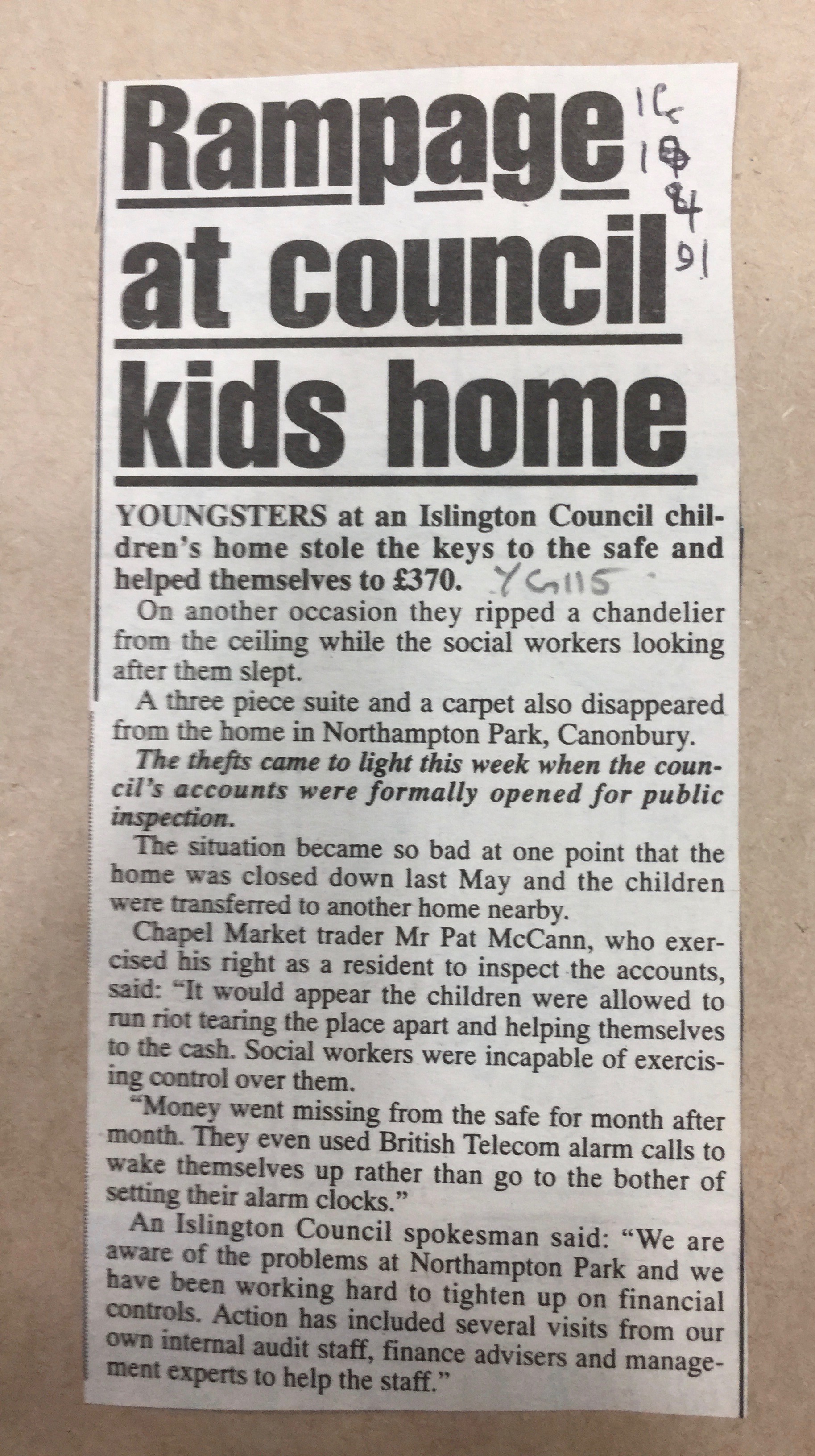Tales of toilet used for homosexual meetings prompts council action
Islington Gazette, 11 June 1982
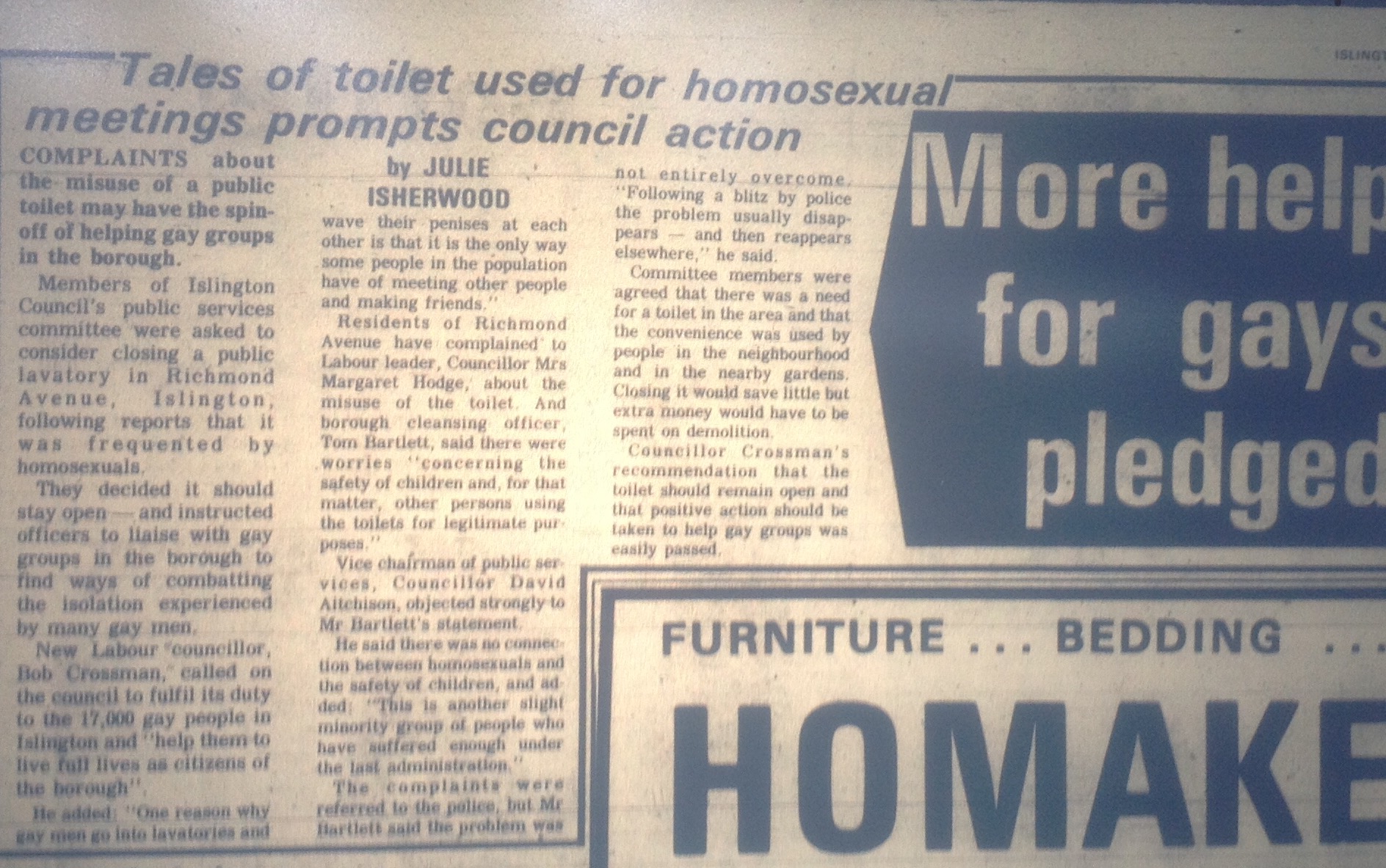
“Complaints about the misuse of a public toilet may have the spin-off of helping gay groups in the borough.”
Islington Gazette, 11 June 1982
A few weeks after the election in May 1982 with Margaret Hodge newly appointed as Council leader, complaints her neighbours and fellow residents of Richmond Avenue had made to her about cottaging activity at their nearby public toilet, had been referred to the police.
In June the Public Services Committee discussed closing Richmond Avenue public toilets.
Borough Cleansing Officer, Tom Bartlett, said there were worries “concerning the safety of children and for that matter, other persons using the toilets for legitimate purposes.”
Islington Gazette, 11 June 1982, Public Services Committee
New Labour councillor, Bob Crossman, “Called on the council to fulfil its duty to the 17,000 gay people in Islington” and “help them to live full lives as citizens of the borough.”
He added: “One reason why gay men go into lavatories and wave their penises at each other is that it is the only way some people in the population have of meeting the people and making friends.”
Islington Gazette, 11 June 1982, Public Services Committee
Vice-Chair David Aitchison objected strongly to Bartlett’s statement, considering it a conflation of issues between gay adult men cottaging to meet one another with gay child abusers seeking to molest boys in toilets. He did not appear to consider that the toilet, being close to a gay pub and a children’s playground, could attract both groups of men seeking sexual activity or that showing concern for the safety of children and a wish to see more local social and support options for gay male residents did not have to be mutually exclusive.
Instead the discussion of how to deal with the persistent problems at the Richmond Avenue public toilets was closed down with an accusation of bigotry.
Aitchison said there was no connection between homosexuals and the safety of children and added: “This is another slight minority group of people who have suffered enough under the last administration.”
“Councillor Crossman’s recommendation that the toilet should remain open and that positive action should be taken to help gay groups was easily passed.”
Islington Gazette, 11 June 1982, Public Services Committee
